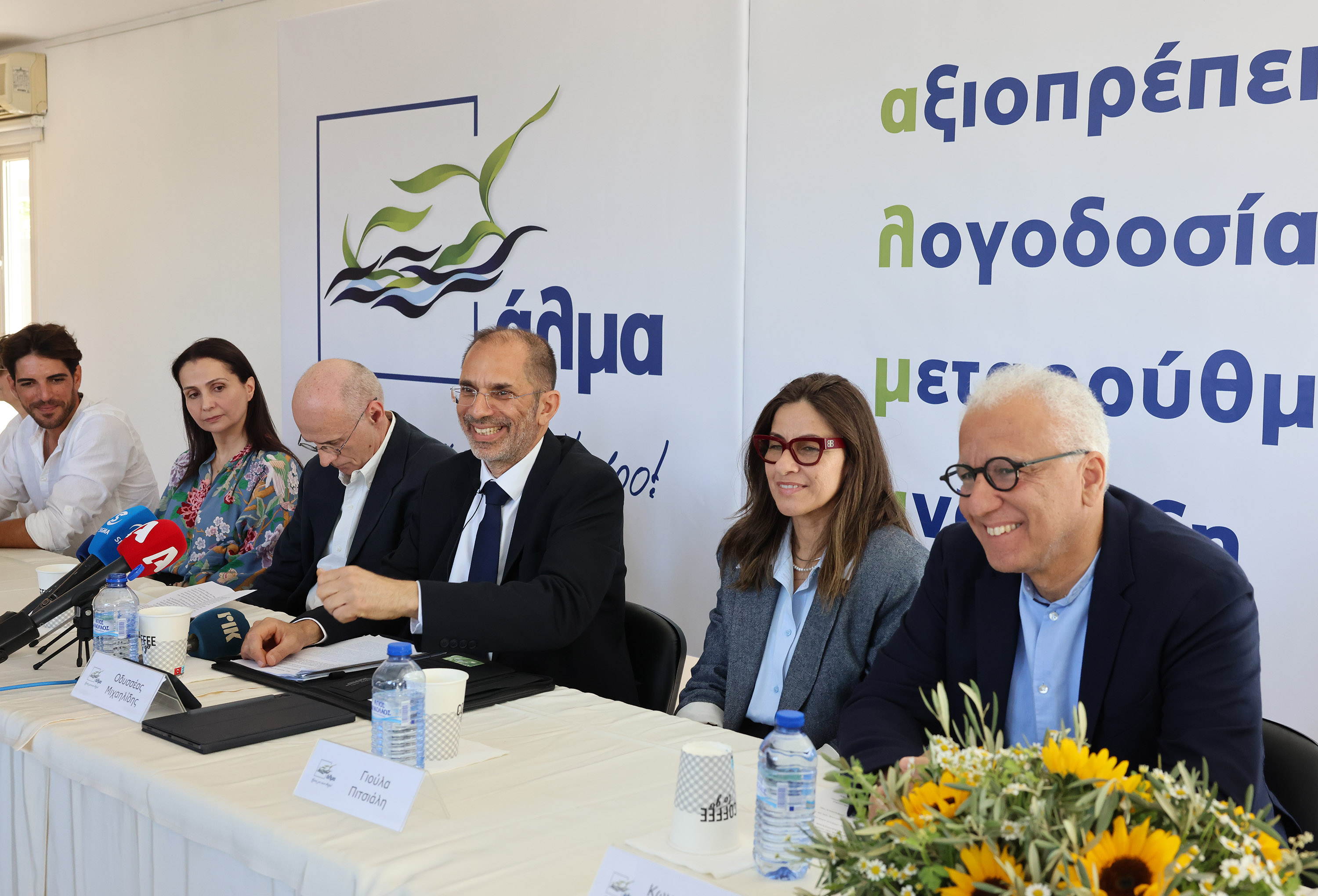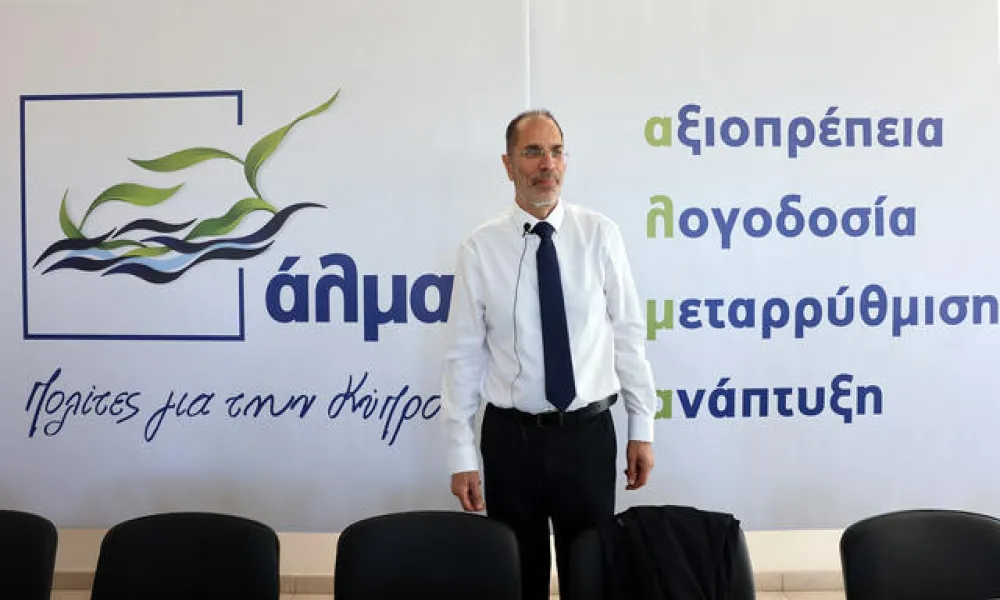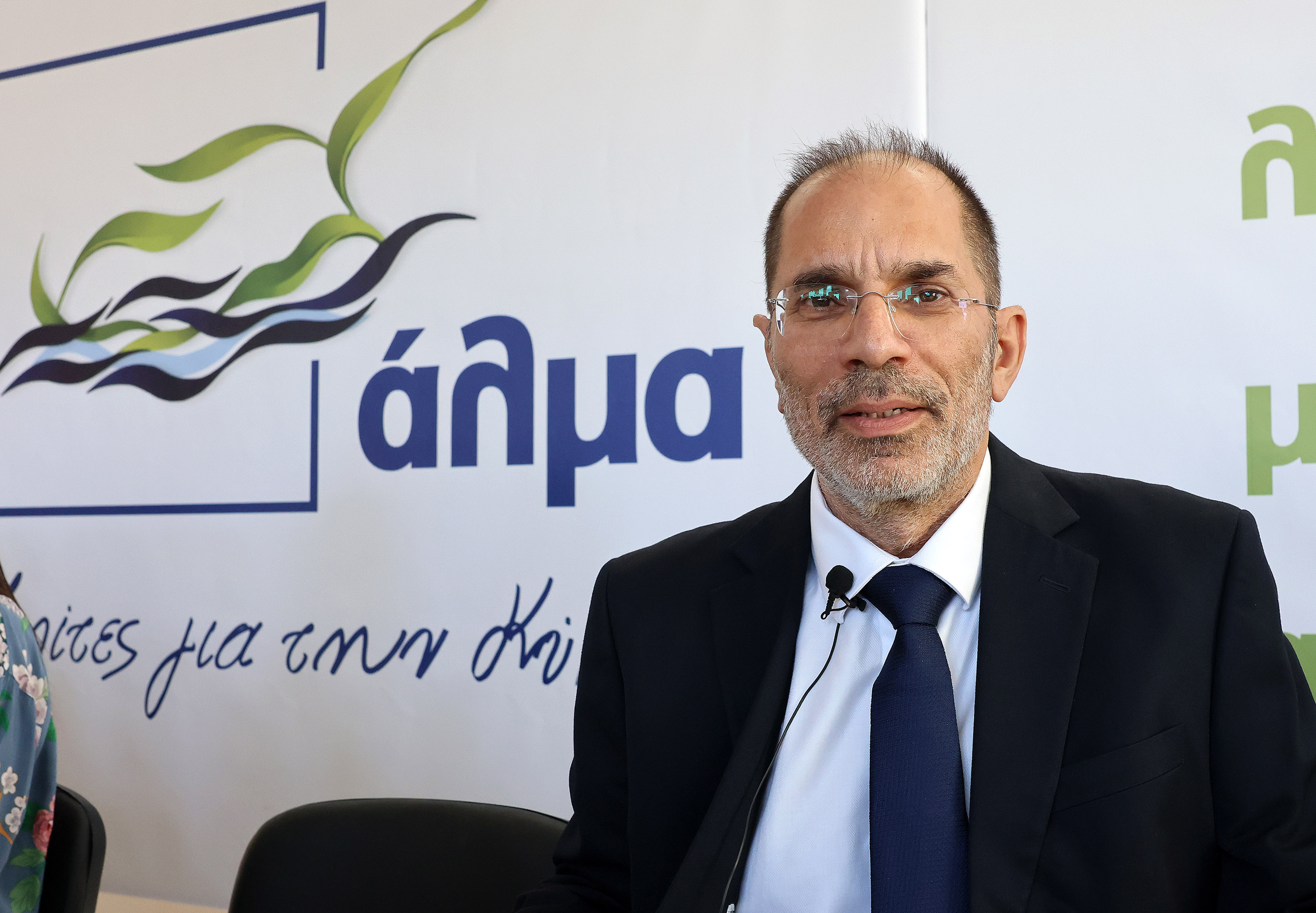The ALMA movement, led by Odysseas Michaelides, heads into the parliamentary race casting itself as a clean, new force in a political system struggling with credibility and energy. Polling suggests ALMA could enter parliament with relative ease, and perhaps even outpoll DIKO. Michaelides’ anti-corruption profile, forged during his term as Auditor General and amplified in a sceptical, scandal-weary public, has given him high personal ratings. But the central question remains: is one man’s popularity enough to carry a new party to fourth place, or does a leader-centred project hide multiple traps on the way to parliament?
The unknown “ALMA”
Surveys to date expose a major weakness: low name recognition. Respondents often ask pollsters to explain which party is being tested in voting-intention questions, only grasping it after hearing it is Michaelides’ party. It is no surprise that his personal ratings do not match ALMA’s polling numbers. On election day there will be no one clarifying party labels inside polling stations. Voters, especially in districts where Michaelides is not on the ballot, may fail to locate ALMA. Assuming its support is “locked” is therefore risky; a double-digit result in 2026 is far from assured. Michaelides may draw significant votes in Nicosia as a candidate, but ALMA as a brand is not yet present in voters’ minds.

One man show
ALMA’s second major weakness is the absence of figures with social and political weight. Without Michaelides, the party would be marginal; others lack the recognition and heft to move votes. Announcing an 11-member transitional executive has not changed the leader-centric character. Neither the deputy leader, academic Haridimos Tsoukas, nor other members would plausibly secure a seat today. Some have civic activity, but not enough to guarantee entry to the House; their main hope is Michaelides’ name. That problem deepens when compiling district slates nationwide: who fills them, and why expect surprises when the executive itself suffers low visibility and limited experience? This may explain Michaelides’ overtures to sitting AKEL MPs such as Irini Charalambidou and Costas Costa, moves made in such haste that Costa publicly contradicted Michaelides’ claim of contact and non-rejection.
Messaging missteps
The lack of seasoned political hands shows in statements that backfire. A response to DISY that referenced English School alumni with insinuations about patriotism insulted a broad cohort and likely alienated that audience. The combative tone of releases evokes student politics rather than a party ready for serious governance and measured argument—reflecting Michaelides’ confrontational style, with no internal counterweight. Because the movement is leader-centric, communications are mono-thematic, fixating on issues Michaelides handled as Auditor General. A party cannot function as an Audit Office; it must cover the full policy spectrum with domain experts. Ignoring large voter groups that engage parties through comprehensive platforms and specialised spokespeople is a structural error.
A presidential candidacy in disguise
These deficits, in people and programme, might have been addressed had Michaelides waited for the 2028 presidential race, assembling a team of experts to craft a full narrative across portfolios. Instead, he opted for parliamentary entry now to monetise his popularity before it fades. Yet Michaelides is a presidential-scale figure; the role of party boss does not fit, and his stated goals are achievable only from the Presidency of the Republic. Voters know a president can do things a party or MP cannot, and they vote differently in presidential contests.
A single-use party?
Using ALMA and parliament as a vehicle for a presidential bid creates another trap: a short shelf life. A leader-centred party founded by a would-be president is likely to wither with succession. There is no obvious heir, and building one is hard. Cyprus offers precedents, United Democrats (George Vassiliou), European Democracy Renewal (Alexis Galanos), the Liberals (Nicos Rolandis), parties created for similar purposes that vanished or fell to the margins. Why would ALMA fare differently when it shares the same traits: one dominant personality and little else? These issues loom as major obstacles to Michaelides’ ambitious plan.

